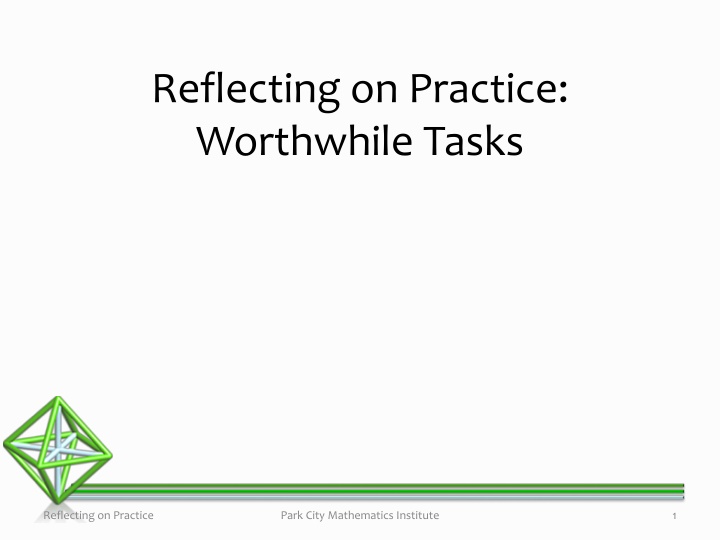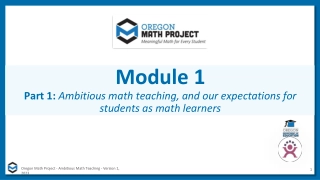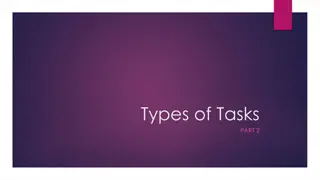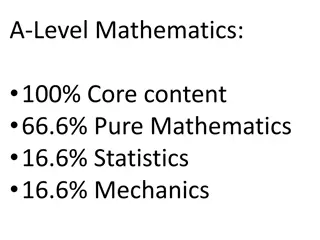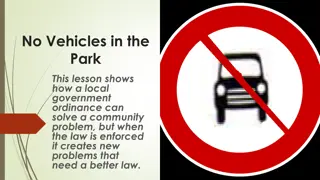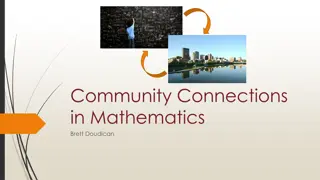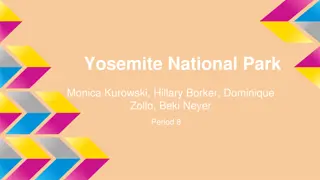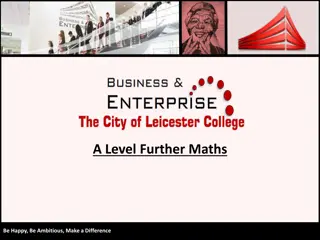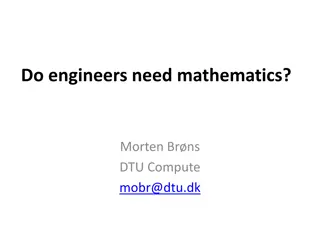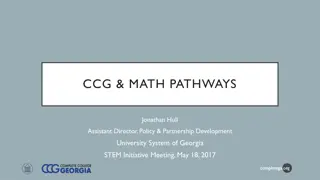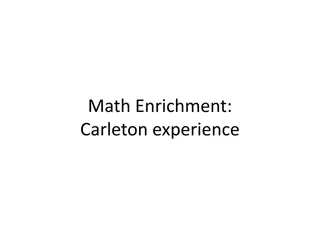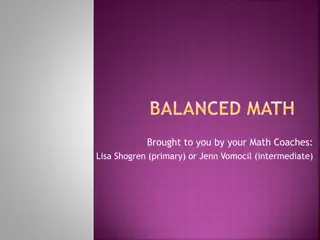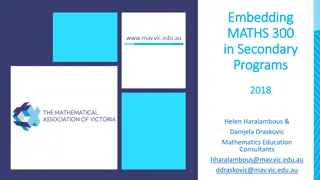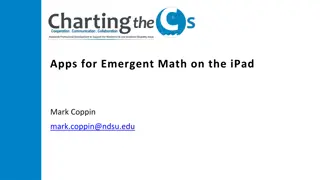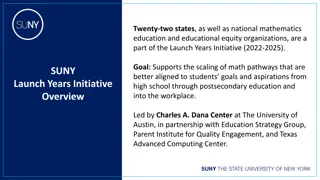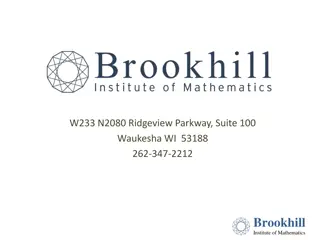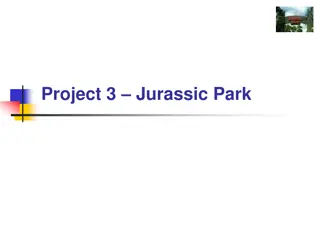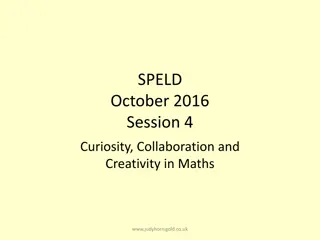Reflecting on Effective Math Tasks at Park City Mathematics Institute
Explore various math tasks presented at the Park City Mathematics Institute, focusing on promoting discussions and eliciting student understanding. Tasks are designed to encourage critical thinking and reasoning, emphasizing the importance of errors in learning opportunities. Participants engage in problem-solving and sharing solutions to enhance understanding and facilitate peer learning.
Download Presentation

Please find below an Image/Link to download the presentation.
The content on the website is provided AS IS for your information and personal use only. It may not be sold, licensed, or shared on other websites without obtaining consent from the author.If you encounter any issues during the download, it is possible that the publisher has removed the file from their server.
You are allowed to download the files provided on this website for personal or commercial use, subject to the condition that they are used lawfully. All files are the property of their respective owners.
The content on the website is provided AS IS for your information and personal use only. It may not be sold, licensed, or shared on other websites without obtaining consent from the author.
E N D
Presentation Transcript
Reflecting on Practice: Worthwhile Tasks Reflecting on Practice Park City Mathematics Institute 1
In the figure below, what fraction of the rectangle ABCD is shaded? A B a) 1/6 b) 1/5 c) 1/4 d) 1/3 e) 1/2 C D NCES, Grade 8, 1996
In the figure below, what fraction of the rectangle ABCD is shaded? A B a) 1/6 (5%) b) 1/5 (3%) c) 1/4 (24%) d) 1/3* (66%) e) 1/2 (2%) C D NCES, Grade 8, 1996
Color of the drawing. Dekker & Querelle, 2002
Another approach to (Dekker & Querrelle)
In which is of the shape shaded? Dekker & Querelle, 2002
What did you like or not like about this task in terms of promoting discussion and eliciting student understanding? Reflecting on Practice Park City Mathematics Institute 9
Tasks should be chosen so that there is an opportunity for error in reasoning or thinking that opens up an opportunity to discuss or explain- not just an error in the next step (lost a negative sign or multiplied incorrectly). Reflecting on Practice Park City Mathematics Institute 10
Choose one of the problems and find a solution Reflecting on Practice Park City Mathematics Institute 11
Choose one of the problems and find a solution Share your solution with one or two others that did the same task Write down a few ways that the task could promote discussion and elicit evidence of student thinking and understanding Reflecting on Practice Park City Mathematics Institute 12
Tasks should be chosen so that there is an opportunity for error in reasoning or thinking that opens up an opportunity to discuss or explain- not just an error in the next step (lost a negative sign or multiplied incorrectly). Reflecting on Practice Park City Mathematics Institute 14
Types of math problems presented Reflecting on Practice Park City Mathematics Institute 15 Hiebert & Stigler, 2004
How teachers implemented making connections math problems Reflecting on Practice Park City Mathematics Institute 16 Hiebert & Stigler, 2004
Mathematics Teaching Practices: Effective teachers 1. Establish mathematics goals to focus learning. 2. Implement tasks that promote reasoning and problem solving. 3. Use and connect mathematical representations. 4. Facilitate meaningful mathematical discourse. 5. Pose purposeful questions. 6. Build procedural fluency from conceptual understanding. 7. Support productive struggle in learning math. 8. Elicit and use evidence of student thinking. (NCTM, 2014)
Take a few minutes to reflect using the prompts: What is one message from this session that you would want to bring back to another teacher? How would you make it meaningful and accessible for them (when they haven t been here with you)? Reflecting on Practice Park City Mathematics Institute 18
Readings Hiebert, J., & Stigler, J. (2004). Improving Mathematics Teaching Improving Achievement in Math and Science, 64(5), 12- 17. Sanchez, W. (2013). Open ended questions and the process standards. 107(3). Mathematics Teacher. Reflecting on Practice Park City Mathematics Institute 19
References Dekker,T. & Querelle, N. (2002). Great assessment problems (and how to solve them). CATCH project www.fi.uu.nl/catch Hiebert, J., & Stigler, J. (2004). Improving Mathematics Teaching Improving Achievement in Math and Science, 64(5), 12-17. National Council of Teachers of Mathematics. (2014). Principles to action: Ensuring mathematical success for all students. Reston VA: The Council Sanchez, W. (2013). Open ended questions and the process standards. 107(3). Mathematics Teacher. . Reflecting on Practice Park City Mathematics Institute 20
